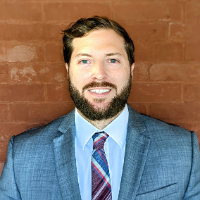 Claymont Misdemeanor Lawyers, Delaware
Claymont Misdemeanor Lawyers, Delaware
Sponsored Law Firm
-
 x
x

Click For More Info:
-
Christofer C. Johnson, Esq.
1201 North Orange St Suite 501 Wilmington, DE 19801» view mapCriminal Defense Law Get The Support You Need For Your Case
Christofer C. Johnson, Esq. has a track record of successful case outcomes and provides legal counsel for a reasonable price.
800-941-4370
Not enough matches for Claymont Misdemeanor lawyer.
Below are all Claymont Criminal lawyers.
Sponsored Lawyers
1-10 of 21 matches
Accident & Injury, Real Estate, Estate, Divorce & Family Law, Criminal
Elwood T. Eveland Jr. is a practicing lawyer in the state of Delaware specializing in Accident & Injury Law. Mr. Evelend received his J.D. from Widener University School of Law in 1981.
(more)Criminal, Juvenile Law, Misdemeanor, Felony
Michael DegliObizzi is a criminal defense attorney with an office based out of Wilmington, Delaware. He is a former criminal prosecutor and supervising attorney at the Delaware Department of Justice. Michael is a seasoned trial attorney, having tried over 75 cases to verdict in the Justice of the Peace Courts, Court of Common Pleas, and Superior Court. He handles all types of criminal matters including traffic offenses, misdemeanor and felony level offenses (assaults, drugs, firearm, etc.), Driving Under the Influence cases, Domestic Violence cases, juvenile offenses, violations of probation, expungements and pardons, and preliminary hearings. Michael graduated from Duke University in 2009 with a bachelor's degree in History and a certificate in Markets and Management Studies. He was a varsity letter winner for Duke's Division I wrestling team and was honored as a National Wrestling Coaches Association Academic All American in 2008, as well as an Atlantic Coast Conference Academic Honor Roll member in 2006, 2007, 2008, and 2009. Michael then attended law school at Villanova University School of Law where he earned his Juris Doctor degree in 2012. He then successfully passed the Delaware Bar Exam and began his legal career in the Criminal Division at the Delaware Department of Justice where he prosecuted misdemeanor criminal offenses in the Court of Common Pleas and Justice of the Peace Courts. He primarily focused on DUI cases and was the lead attorney responsible for running the Court of Common Pleas’ Mental Health Court on behalf of the State. He progressed in his duties to handling complex felony cases including financial related crimes, Burglary, Robbery, Drug Dealing, and weapon/firearm related offenses. Additionally, Michael has successfully prosecuted several homicide and gang participation cases. In 2016, Michael was promoted to be the Assistant Unit Head of the Misdemeanor Trial Unit where he supervised all new criminal Deputy Attorneys General as they entered the office. He was responsible for teaching new prosecutors how to handle a caseload and take a case to trial. As part of his duties, he reviewed every misdemeanor DUI arrest in New Castle County to determine the appropriate plea offer. Michael is certified in DWI Detection and Standardized Field Sobriety Testing by the National Highway Traffic Safety Administration. He has led numerous DUI trainings for both law enforcement officers and attorneys. In 2018, Michael was promoted to Unit Head of the Domestic Violence Unit. He supervised a team of Deputy Attorneys General, paralegals, administrative specialists, and social workers that handled misdemeanor and felony domestic violence, child abuse, and elder abuse cases. He was the Attorney General’s designee on the Fatal Incident Review Team, the Victim Services Advisory Committee, and the Domestic Violence Coordinating Council committees. While in law school, Michael served as a judicial intern for the Honorable Chief Justice Myron T. Steele of the Delaware Supreme Court. He also interned at the law firm of Kimmel, Carter, Roman, Peltz & O'Neill, P.A.
(more)Divorce & Family Law, Employment, Business, Accident & Injury, Criminal
Chris Johnson is a native of Philadelphia and graduated from the William Penn Charter School. He received an academic scholarship to the University of Delaware where he majored in Economics and also competed on the Division I Indoor & Outdoor Track & Field teams. He graduated from Widener University School of Law in December 2009 and immediately went into private practice with the firm of Shanese I. Johnson & Associates, P.C. Chris currently practices in the firm's Family Law, Real Estate, and Criminal Law practice areas. Even though Chris is fairly new to the practice of law, Chris has already represented hundreds of clients in local Family Law matters in Philadelphia, Montgomery, Delaware, Chester, and Berks counties. Chris prides himself on his commitment to serving his clients with excellence by providing experienced, detail oriented, high quality and affordable representation. Chris also has worked at several other diverse legal agencies including the Philadelphia Court of Common Pleas Domestic Relations Division, the State of Delaware Attorney General's Office Criminal Division, and also a major civil litigation firm in Lancaster County, PA. Chris is currently a very active volunteer as he gives his time to represent clients in both civil and criminal matters for Philadelphia VIP, the Consumer Bankruptcy Assistance Project, and South Jersey Legal Services. Chris also serves national and local political campaigns as a voter protection attorney. His other activities include the Philadelphia Bar Association (Family Law Section, Criminal Justice Section), Pennsylvania Bar Association (Young Lawyers Division), Camden County Bar Association, Support Center for Child Advocates, Barristers’ Association of Philadelphia.
(more)


 Christofer Johnson Wilmington, DE
Christofer Johnson Wilmington, DE AboutChristofer C. Johnson, Esq.
AboutChristofer C. Johnson, Esq. Practice AreasExpertise
Practice AreasExpertise



